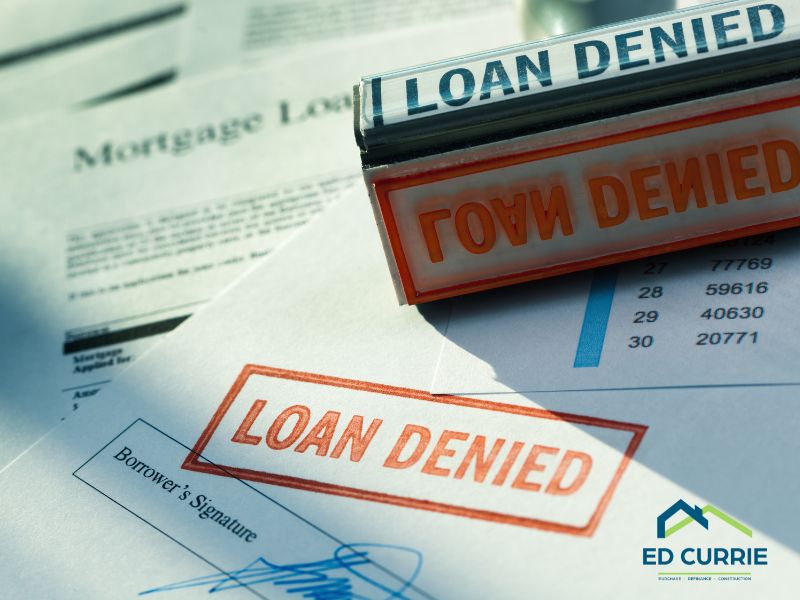I was hoping 2024 would be the year rates finally “normalized” after a painful two years.
For the most part, the 30 year fixed rate was ~3%+/- in 2020 through January of 2022. They then increased aggressively where they doubled to 6% in September of ’22 and then peaked at nearly 8% in October of 2023. 2024 had to be our year, right? It wasn’t.
As always, mortgage rates are impacted by a number of factors. Some of the factors are obvious like inflation and the strength of the economy and some are not so obvious like the Fed’s balance sheet and the supply of bonds issued to cover our ever increasing budget deficit. There’s a few more factors that may come into play this year.
Inflation
Inflation initially made some headway earlier in the year but then reaccelerated. Using “core PCE” inflation dropped from about 3% to bottom in June at about 2.6% and then went back up. Inflation continues to be “sticky” and the likelihood it gets to 2% (the Fed’s target) this year is unlikely. Shelter cost (rents and rent equivalents) continue to stay elevated.
Last May and June, the inflation was about 0% for each month so this May and June whatever the rate of inflation is will replace that 0%. That means the annual inflation rate that is reported will likely move higher and not lower.
So inflation will most likely NOT be a help to mortgage rates this year.
Tariffs
Incoming President Trump has promised to put various tariffs in place when he takes office. The market believes that this could be inflationary which has been a factor in rates moving higher the past few months.
I believe the tariff issue won’t be a negative for rates this year and may EVENTUALLY CAUSE RATES TO FALL A BIT ON BALANCE: Why?:
- Trump put tariffs in place during his first term and inflation remained low and flat
- Trump’s tariff threats are most likely just tactics to negotiate various trade agreements and other items
- If it becomes clear that the tariff threat does not negatively impact inflation, that concern would come out of the rate premium and rates would fall
I do not believe tariffs will have a negative impact on rates this year.
The Economy
The economy continues to be on solid footing. Some of the forecasts over the past few years for a hard landing, soft landing or recession have never materialized. I have been quite amazed on how resilient the economy has been with how stretched the average consumer is. I’ve thrown in the towel on predicting a recession. Perhaps this is when it happens!
Trump’s pro-economy policies (sans tariffs) will likely improve economic activity or at least create the expectation for increased economic activity. On balance this is bad for mortgage rates. At the same time, Trump won’t want inflation to rise again and be confronted with his criticism of the Biden administration on inflation so he will need to tread lightly.
My sense is that the economy will continue on a low growth but positive path for 2025 and not have an impact on mortgage rates.
Housing
Housing has continued to be strong with YOY increases in the 2-3% range. While this doesn’t appear to be significant, it comes after monster gains in 2020-2022 and “experts” calling for a crash after mortgage rates went up.
The supply/demand imbalance will continue for 2025 although it will be better than the past few years. The cost to buy a home continues to be at historic highs making it tough for first time homebuyers to afford one. The average first-time home buyer is now 38 years old!
Housing should be steady this year and I do not see a housing correction nationally. There may be some markets that drop single digits but on balance the US should increase 2-3%.
The Fed
Policy
The Fed started cutting rates for the first time in 4.5 years in September. Inflation had been falling all year so the markets had baked in a healthy half point cut and the Fed obliged even though inflation was starting to head back up when they did so. They cut a quarter point in both November and December while inflation continued to climb.
Six months ago, the markets were pricing in 4-6 rate cuts for 2025. Now it’s 1-2. This is important because it’s not what the Fed does that drops mortgage rates but what the market believes they will do.
Since the Fed started cutting rates in September, for a total of 1%, mortgage rates have risen about 1%. To repeat that, Since the Fed started cutting rates in September, for a total of 1%, mortgage rates have risen about 1%.
It’s not what the Fed does, it’s what the market believes they will do. Since September, the market has massively pulled back how much they think the Fed will cut. So when rates bottomed out in September, it’s because the market thought the Fed would be aggressively cutting throughout 2025.
Balance Sheet
The Fed at times may buy or sell bonds which has a very big impact on the direction of mortgage rates. This is a dry topic but stick with me here because it’s very important.
In 2020, to support the markets after Covid kicked in, the Fed started buying (quantitative easing or QE) hundreds of billions of dollars a month of bonds and treasuries to support the markets. When the Fed buys, so does the rest of the market and rates fall. When they did this, it ended up on their balance sheets just as it would if you bought some bonds. That pushed the Fed’s balance sheet from about $4 trillion pre-Covid to about $9 trillion in 2022.
In June of 2022, they decided they want to sell (or let mature) bonds and treasuries as to reduce the size of their balance sheet. This is quantitative tightening (QT). When the Fed sells so does the rest of the market and rates go up. When the Fed buys or sells, it has tremendous impact on the market.
The Fed is still selling or letting mature billions of dollars of bonds and treasuries each month. The market believes there is a chance they stop doing that this spring. If they do this, it could have a massive impact on rates for the better.
National Debt
Since Covid, the US has added about $10 trillion to our national debt. That debt needs to be financed. It gets financed through bills, notes and bonds. The more we have, the more bills, notes and bonds have to be issued by the treasury and bought by global investors. And the more debt we have the higher the rates investors will demand to be paid
This will be an issue that will probably hold rates aloft.
Employment/Jobs
The employment situation may be our only savior for meaningfully lower rates in 2025. The Fed seems to be resigned that inflation will not measurably improve this year. They have also made comments that the jobs picture and unemployment rate is something they are watching closely.
If the unemployment rate creeps up to 4.5% or we have a few months of weak or negative job growth, that would be a trigger for The Fed to step up rate cuts which in turn would cause the market to buy treasuries and mortgage bonds which would lower rates.
Mortgage Rates
If you’ve made it this far and you haven’t fallen asleep– thank you!
I was wrong last year. I predicted the 30 year would drop to ~5.5%. It got to 6% and went back up. That half-percentage point is significant for the impact on purchases and refinances. I believe at 5.5% or lower, it starts to unlock more buyers and refinance opportunities. Will we get there is year? I don’t think so.
This week the average 30 year fixed is about 7%. I think we’ll be lucky to get back to 6% this year. A recession would be needed to get below that which I am not predicting. Without a recession, there are too many unknowns that will keep rates up.
Inflation should stay up and flat
- The markets will “wait and see” on tariffs
- The economy should be fine, if not improve
- The Fed will likely do very little by way of cutting, but:
- If they end quantitative tightening, that will help a bit
The things that have a drastic impact on rates lower are generally things we don’t want:
- Recession
- Housing crash
- Global conflict
- Pandemic
- “Unexpected event”
Of course, there are always surprises. What will this year’s surprise(s) be and will it help rates? I’m not optimistic but I am very hopeful!
Have a great 2025!
Ed




![EdCurrie_Logo White[Transparent] EdCurrie_Logo White[Transparent]](https://edcurrie.com/wp-content/uploads/elementor/thumbs/EdCurrie_Logo-WhiteTransparent-qybu3sjgpfhje9098uitv7fpt7os2hgn52gfy6ocx4.png)